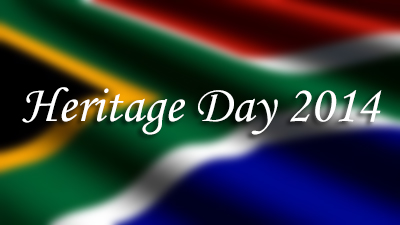Many South Africans are already planning how they will observe Heritage Day on September 24. On this special day all South Africans are encouraged to celebrate our rich natural and cultural heritage, diverse beliefs and traditions as a people united in pursuit of a shared identity.
Sadly, the noble intentions of National Heritage Day have been subverted and commercialised. It cannot be that our heritage is defined by a narrow commercial endeavour. We do not dispute that it is a day for family and friends to gather together to celebrate our heritage through food, cultural exchanges and camaraderie.
Generally we seem to have reached a stage in our history where the celebration of National Days attracts only a handful of the faithful. This then requires of us to do some introspection on how we commemorate these days. It also requires of us to ask fundamental questions around whether the emergence of alternative celebrations, such as ‘National Braai Day’ which tends to undermine the essential context of some of our National Days, should go unchallenged.
The position of the National Heritage Council, to which we should all subscribe as South Africans, is that in as much as we respect the rights of those involved in the so-called National Braai Day initiative, it is important that we respect the themes that have been set aside for National Heritage Day as one of the Constitutionally enshrined National Days to be respected by everyone. For to have a parallel theme undermines the national agenda and that must be discouraged.
As a nation we face serious challenges around social cohesion, poverty, unemployment and inequality. Thus, we should not allow our National Days to be trivialised and reduced to commercial and marketing opportunities that encourage rampant consumerism. Our heritage extends far beyond throwing a piece of meat on a hot grill, enjoyable as that might be.
The inspiring words of our founding President Nelson Mandela on the significance of Heritage Day in 1996 still ring true today: “When our first democratically elected government decided to make Heritage Day one of our national days, we did so because we knew that our rich and varied cultural heritage has a profound power to help build our new nation.”
He added: “We did so knowing that the struggles against the injustice and inequities of the past are part of our national identity; they are part of our culture. We knew that, if indeed our nation has to rise like the proverbial phoenix from the ashes of division and conflict, we had to acknowledge those whose selfless efforts and talents were dedicated to this goal of non-racial democracy.”
This day is about remembering where we come from, our heroes and heroines. It is a celebration of our history and a chance to reflect on where we are going as a country. We cannot build a united nation without understanding who we are; our past still has a significant bearing on our future and we must learn from it. Our tragic legacy must serve as a reminder to the youth of the sacrifices made by the older generation so that we may be free. It must inspire us to build on the foundation they have laid.
Tell a story that moves South Africa forward
National Heritage Day is an opportunity to share stories about our heritage. It is a day for families to visit heritage sites, and for children to learn about the struggle heroes who fought against apartheid. We dare not allow the sacrifices of those who gave all, so that we may be free, to be forgotten.
This initiative is in line with the theme for this year’s Heritage Month; “Celebrating 20 years of democracy: Tell your story that moves South Africa Forward”. This year’s Heritage Month also takes place against the backdrop of our 20 Years of Freedom celebrations which reinforces our collective memory of the struggle towards promoting a national identity.
Celebrating our heritage is an integral part of healing the divisions of the past and to establish a society based on democratic values, social justice and fundamental human rights.
For centuries the country’s history was biased to serve the apartheid regime’s ideals. For instance, our museums and monuments were only accessible to a few and reflected the experiences and political ideals of the minority. The advent of democracy changed this and ensured that our cultural institutions portray the country’s diverse history.
It has also brought about profound changes and in the process liberated voices that have been silenced for centuries. All of us are now able to tell stories about our lived experiences during the dark days of apartheid. We can now speak freely about the many heroes and heroines of the liberation movement and different watershed moments in our struggle history.
As we spend time with family and friends during this time, we should also take the initiative to explore our natural heritage by visiting our national parks, heritage sites, memorials and buildings named after a number of our icons from South Africa and the African continent. These include Sarah Baartman, Sol Plaatjie, Nelson Mandela, Shaka Zulu, Steve Biko, Samora Machel and others. South Africa is also home to eight of the world’s official heritage sites, as determined by UNESCO’s World Heritage Committee and we need to encourage future generations to guard it jealously.
We all need to be proud of our heritage and where it is under threat, play our part to protect it. In particular, we have to protect of our indigenous fauna and flora so that future generations can continue enjoying it in all its natural splendour.
Our unique, rich and diverse heritage is a cause for celebration and reflection. We should, however, guard against Heritage Day being overtaken by pure commercialisation. This day is about respecting and acknowledging the past, celebrating the present and building the future together.
– By ProundlySA and the National Heritage Council


